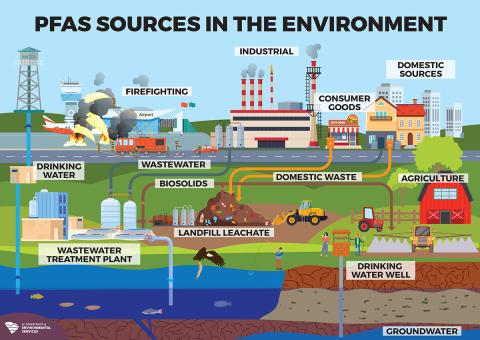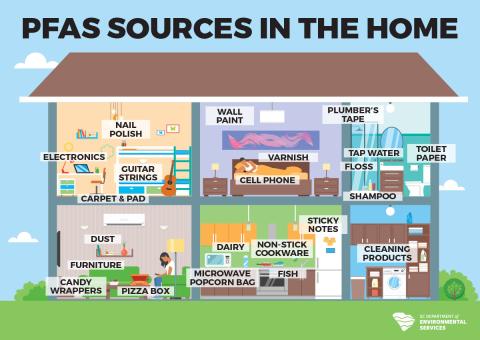PFAS are a large group of man-made chemicals that present public health and environmental issues in communities across the United States. PFAS have been used worldwide in consumer products and in some industrial applications to make products that resist heat, oil, stains, grease and water. PFAS chemicals are widespread in the environment because of their longevity, unlimited uses and resistance to breakdown. PFAS can accumulate in people, wildlife and fish.
If you have a private well that is used for drinking water, you can apply to have your well tested for PFAS free of charge.






